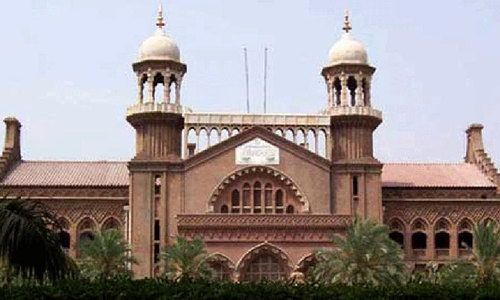ISLAMABAD: The Election Commission of Pakistan (ECP) has decided to appoint serving judges of high courts to adjudicate election disputes in election tribunals, a senior official of the commission told Dawn on Saturday.
Contrary to the tradition of appointing retired judges to election tribunals, the ECP has written letters to the registrars of five high courts seeking lists of judges for the purpose. A notification for appointment of judges to election tribunals is expected to be issued next week.
According to legal experts, appointment of serving judges for election tribunals may slow proceedings of cases in high courts. More than two million cases are pending in various courts of the country — around 1.7 million cases in lower courts, 295,000 cases in the five high courts and 40,000 cases in the apex court.
The Election Act, 2017 states that if a serving judge works for an election tribunal, the election commission will request the chief justice of the relevant high court that no judicial work other than election petitions should be entrusted to him/her till the final disposal of these petitions.
Normally judges for election tribunals are appointed after issuance of the final notification of election results which is also the beginning of the countdown of 45 days given for filing cases against the results. As the notification for election tribunals has been issued late this year, the applicants will have less than 45 days for the purpose.
The Election Act, 2017 allows the ECP to appoint a serving or retired judge of the high court to hear poll disputes in election tribunals. It states that the ECP can appoint a sitting judge for election tribunal in consultation with the chief justice of the relevant high court.
Election petition
According to the law, an election petition should have a complete list of witnesses and their statements on affidavits, documentary evidence relied upon by the petitioner in support of allegations, affidavit of service to the effect that a copy of the petition along with copies of all annexures, including list of witnesses, affidavits and documentary evidence, have been sent to all the respondents by registered post or courier service and the relief claimed by the petitioner.
The law states that a petitioner may claim as relief any of the following declarations: “(a) that the election of the returned candidate is void and petitioner or some other candidate has been elected; or (b) that the election of the returned candidate is partially void and that fresh poll be ordered in one or more polling stations; or (c) that the election as a whole is void and fresh poll be conducted in the entire constituency”.
The law states that an election tribunal has to decide a petition within 120 days of its filing, but at the same time if the decision is delayed further adjournment sought by a party will be granted only on payment of special costs of Rs10,000 per adjournment and adjournment cannot exceed for more than three days.
If an election tribunal itself adjourns a petition, it shall record reasons for such adjournment.
The election tribunal after giving the reasons can refuse to examine any witness if it is of the opinion that the evidence of such witness is not material for the decision of the election petition or that the party on whose behalf such witness has been summoned has done so on frivolous grounds or with a view to delaying the proceedings.
Appeal against the decision of an election tribunal regarding election of a National Assembly seat can be made in the Supreme Court within 30 days of the decision.
Published in Dawn, August 12th, 2018














































